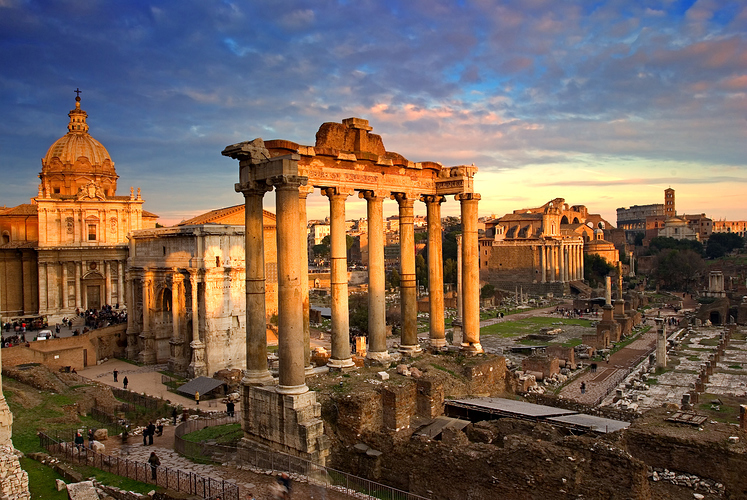In the LA Review of Books, Ellie Robins has a glowing (and sobering) review of Kyle Harper’s recently published book The Fate of Rome: Climate, Disease, and the End of an Empire. As Robins writes, Harper’s detailed history of that climate fluctuations and disease outbreaks that figured into the long and brutal decline of the Roman Empire serves as a cautionary tale for today, when the captains of the capitalist system act as if our civilization is immune to changes in climate and the earth’s ecosystem. Here’s an excerpt from the review:
My division, here, into disease and climate factors does Harper’s work a disservice: he takes pains to show that no such separation exists. Rather, disease ecology, climate events, and human activity fed — and still feed — on each other in an endless cycle. Had the Romans not excelled at trade and exploration, they wouldn’t have brought bubonic plague to the empire from Asia; had they not required such huge stores of grain to feed the population, the host rats wouldn’t have multiplied; had the climate not cooled so drastically, the population might have been better equipped to withstand the plague. And because human, disease, and climate factors are so inextricably linked, Harper shows that this new reading doesn’t usurp the traditional explanations for Rome’s fall but rather fleshes them out. With this background filled in, it’s easier to understand the empire’s susceptibility to invasion, economic troubles, and internal division.
Harper’s purpose, then, is not to deny humankind’s agency but rather to contextualize it as a force, and sometimes a powerful one, within the infinitely complex system of forces that is life on Earth. The Fate of Rome is unapologetically a work of scholarly history, and as such Harper doesn’t insist at length on the parallels with our own age. Non-specialized readers will nevertheless be galvanized by the book’s meticulous examination of how catastrophes, unfolding slowly but inexorably, blight advanced cultures, particularly when those cultures habitually meddle with and underestimate nature. The work might even serve as a reminder that humans are, in fact, not antagonists or caretakers of nature — or “great men” who could hold back a hurricane if they only delivered the right speech — but rather wholly, helplessly, and before all else a part of it, with no chance ever of extricating ourselves from its web.
Image of the Roman Forum via history.com.
